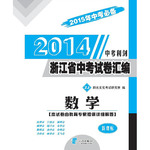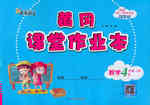题目内容
M: Michelle D: Drake
D: Michelle, why are you dancing? I thought we had to study for our math test!
M: Oh, hi, Drake! I was doing some exercise just now. I thought you must have been 1. (stick) in the heavy traffic for it was the rush hour. Let me turn the music 2. .
D: You exercise by 3. (dance)? I thought things like running and bicycling 4. (consider) exercise.
M: Well, those are other good ways to work out, but I like to dance. It is fun to move around to music, and you can 5. (sure) work up a sweat. Do you like to dance?
D: Yes, I do, 6. I am not a very good dancer. For exercise, I prefer playing soccer. Guess what? I 7. (play) in a match this time next Saturday.
M: Cool! I know you like to go to the park on the weekend and play soccer. Maybe you should try dancing, and I will try playing soccer.
D: Do you know how to play soccer? 8. is really very easy to learn once you try.
M: I cant play soccer very well, even though I used to play a lot when I was a kid. 9. you teach me some of your soccer moves, I’ll teach you some dance moves! How does that sound?
D: It’s 10. deal. If it weren’t for the math test tomorrow, we could go to the gym right now.
M: Right. No more fun and games. Let me get my notebook.
1.stuck
2.off
3.dancing
4.were considered
5.surely
6.but
7.will be playing
8.It
9.If
10.a
【解析】
试题分析:考查单词及适当的形式。
1.
2. off固定搭配,意思是关上…。
3.
4. considered。此处是被动。
5.
6.
7. be playing。此处是将来时,所以用will be playing。
8.
9.
10.
考点:考查完成句子

 中考利剑中考试卷汇编系列答案
中考利剑中考试卷汇编系列答案 教育世家状元卷系列答案
教育世家状元卷系列答案 黄冈课堂作业本系列答案
黄冈课堂作业本系列答案